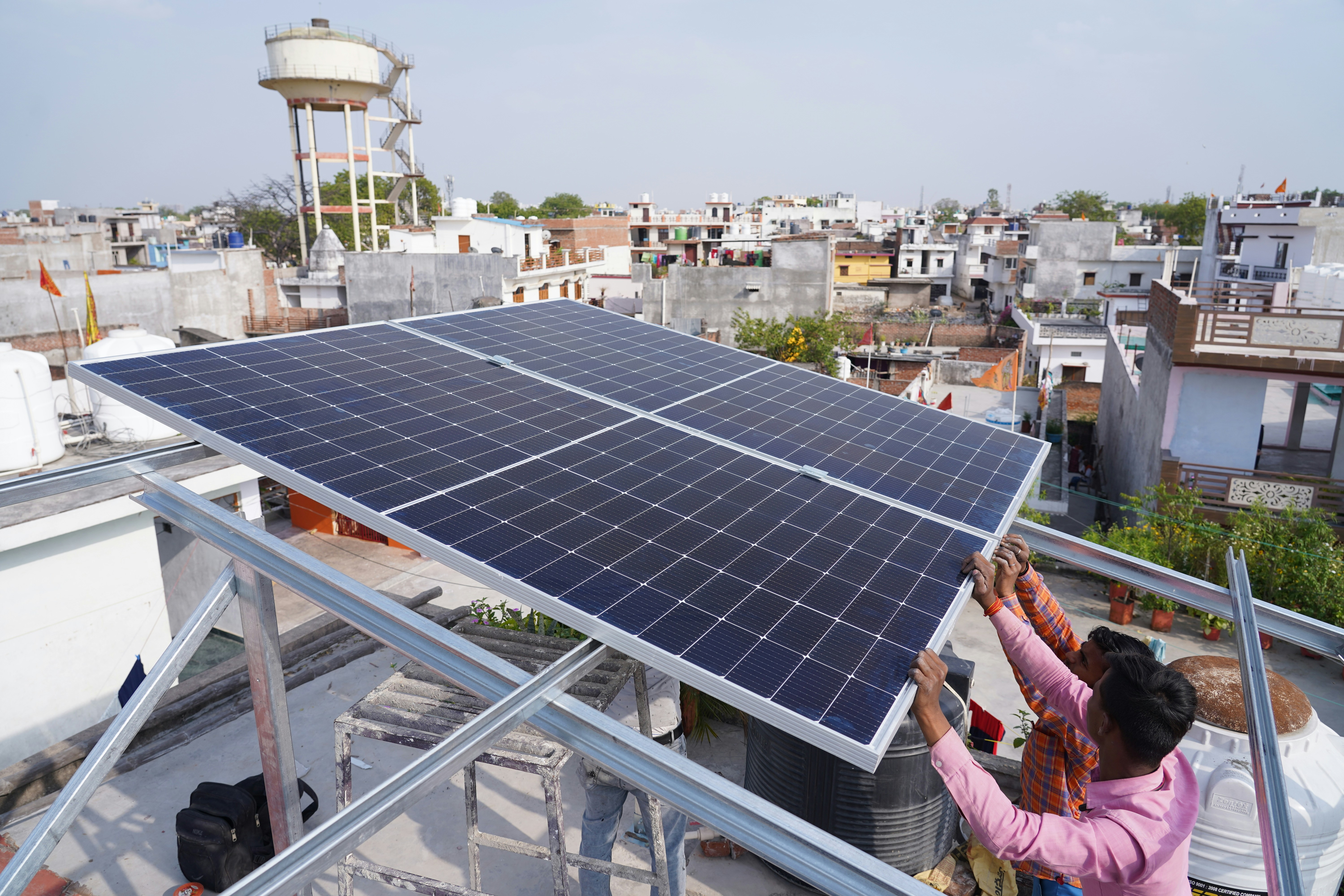Understanding Solar Panels: How They Work
Solar panels are devices that convert sunlight directly into electricity through a process known as the photovoltaic effect. At the core of this technology lie the photovoltaic (PV) cells, typically made from silicon, which is a semiconductor material. When sunlight strikes these cells, it excites electrons, creating an electric current. The amount of electricity produced depends on several factors, including the efficiency of the solar panel, the intensity of sunlight, and the angle at which the sunlight hits the panels.
There are three main types of solar panels available on the market today: monocrystalline, polycrystalline, and thin-film panels. Monocrystalline panels, made from a single crystal structure, are known for their high efficiency rates, usually around 15-22%. They are space-efficient and often favored for residential applications. On the other hand, polycrystalline panels, created from multiple silicon crystals, are less expensive to produce but generally have slightly lower efficiency levels, approximately 13-16%. These panels are suitable for larger installations where space is less of a constraint.
Thin-film panels are comprised of a variety of materials, including cadmium telluride and amorphous silicon. While they tend to have lower efficiencies, typically between 10-12%, their lightweight and flexible nature makes them versatile for different applications, including integration into building materials. Additionally, thin-film panels can perform better in low-light conditions, which can be an advantage in certain environments.
Beyond the panels themselves, a solar panel system consists of various components that work in unison. These include an inverter, which converts the direct current (DC) generated by the panels into alternating current (AC) for household use, and a mounting system that ensures proper installation and orientation for optimal sunlight exposure. Understanding the technology behind solar panels is essential for making informed decisions about sustainable energy solutions.
The Environmental and Economic Benefits of Solar Energy
Solar energy presents a multitude of advantages that positively impact both the environment and the economy. One of the most significant benefits of solar panels is their contribution to the reduction of the carbon footprint. By harnessing clean, renewable energy from the sun, individuals and businesses can significantly decrease greenhouse gas emissions that are traditionally associated with fossil fuels. According to the U.S. Environmental Protection Agency (EPA), the adoption of solar energy can help mitigate climate change by significantly lowering the amount of carbon dioxide produced in energy generation processes.
Additionally, solar energy reduces reliance on fossil fuels, which are finite resources subject to volatile market fluctuations. Transitioning to solar power helps diversify the energy supply and fosters energy independence—a crucial consideration for both economic and national security. Recent statistics indicate that widespread adoption of solar energy can lead to a reduction in coal and natural gas consumption by millions of tons annually, thus safeguarding the environment and helping to stabilize energy prices.
From an economic perspective, solar energy offers long-term financial savings for homeowners and businesses. While the initial investment in solar panels may seem substantial, the decline in electricity bills and the availability of government incentives and rebates ultimately lead to substantial savings over time. For instance, a typical residential solar energy system can save homeowners approximately $20,000 to $40,000 over its lifespan, depending on local energy costs and available tax credits. Furthermore, various government programs encourage solar energy adoption, making it more accessible to a broader audience. These initiatives often include tax deductions, financing options, and grants aimed at offsetting the initial costs associated with solar installations.
In summary, the environmental and economic advantages of solar energy demonstrate its vital role in promoting sustainable practices. The transition to solar panels not only fosters ecological health by mitigating pollution but also enhances financial savings and stimulates economic growth through job creation in the renewable energy sector.
Our Company: A Leader in Solar Energy Solutions
At the forefront of the solar energy industry, our company is dedicated to providing innovative solar solutions that empower both residential and commercial clients. Our mission is to transform how energy is utilized by promoting clean, renewable sources, particularly solar power. We envision a future where solar energy plays a critical role in reducing dependence on fossil fuels, contributing to a healthier environment, and fostering energy independence for our customers.
We offer a comprehensive range of services designed to meet the diverse needs of our clients. Our residential solar installations ensure that homeowners can harness the sun’s energy effectively, leading to substantial savings on energy bills and a reduced carbon footprint. For businesses, we provide tailored commercial solar solutions that enhance operational efficiency and sustainability. Beyond installations, our services encompass maintenance to ensure optimal performance of solar systems and consulting to guide clients throughout the solar adoption process.
With extensive experience in the solar energy sector, we pride ourselves on our technical expertise and commitment to quality. Our team comprises certified professionals who stay updated with the latest technologies and industry trends, ensuring that our clients receive the best possible service. Our dedication is reflected in the multitude of positive customer testimonials, which highlight our reliability, professionalism, and the substantial benefits clients have achieved by choosing our solutions.
We believe that investing in solar energy is not only a sound economic decision but also a crucial step towards fostering a sustainable future. By choosing our company, clients can rest assured knowing they are working with a leader in solar energy solutions who prioritizes their satisfaction and the environment.
Getting Started with Solar: A Step-by-Step Guide
Transitioning to solar energy can seem daunting, but breaking it down into manageable steps can simplify the process. The first step is conducting an energy audit. This involves assessing your current energy consumption to understand how much power you need. You can evaluate your monthly energy bills and identify trends in usage. An energy audit will help tailor solar solutions to your specific requirements, ensuring maximum efficiency and savings.
Next, assessing the suitability of your roof is crucial. Solar panels require adequate sunlight exposure; therefore, you need to evaluate your roof’s orientation, pitch, and shading from nearby trees or buildings. Ideally, a south-facing roof with minimal shade will yield the best results. You may want to consult a professional to conduct a roof inspection and gauge whether any necessary reinforcements or repairs are required before installation.
After determining your energy requirements and roof suitability, the next step is choosing the right type of solar panel system. There are primarily three types of solar panel systems: grid-tied, off-grid, and hybrid. Each system has its advantages and suits different needs and circumstances. A grid-tied system is typically more cost-effective as it allows you to draw from the grid when necessary, while off-grid systems provide full independence from traditional power sources. Consulting with our team can provide valuable insights into which option aligns best with your lifestyle.
Finally, navigating financing options is essential in making solar energy accessible. Various incentives, tax credits, and financing plans are available to ease the investment burden. Researching these options thoroughly will allow you to make an informed decision that aligns with your financial strategy. Our team is ready to assist you through every step of the process, ensuring you feel confident and supported on your journey to harnessing solar energy.



Leave a Reply